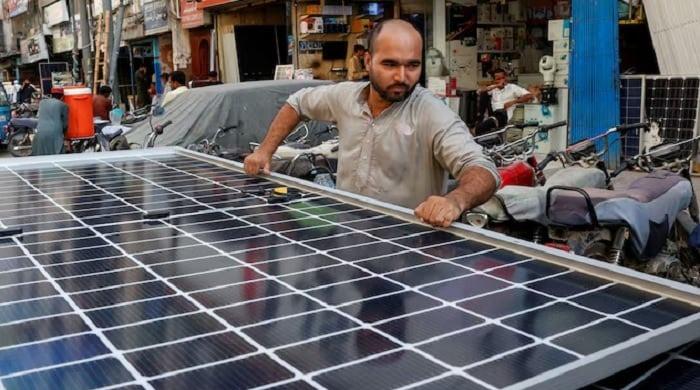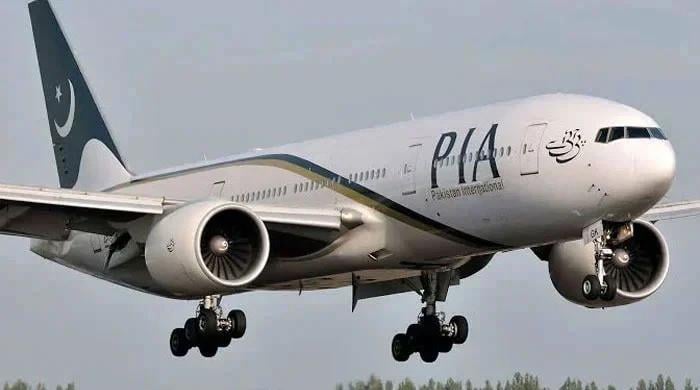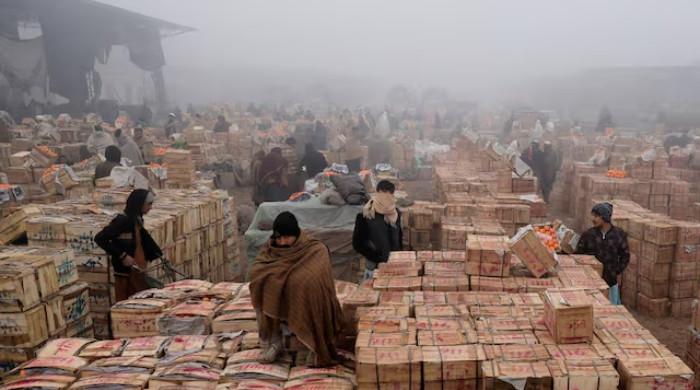Sri Lanka's economic turnaround: A lesson for Pakistan
Now the billion-dollar question is: When will Pakistan celebrate its true economic turnaround?
July 07, 2024

After suffering a spate of disasters in the last two decades, including the 2022 economic turmoil, the 2019 Easter Sunday bombings, and the devastating 2004 tsunami, Sri Lanka is back on track and marking a miraculous stabilisation of its economy with cultural festivals across the world.
Sri Lanka’s remarkable recovery from default to development serves as a valuable lesson for countries like Pakistan, which is currently striving to secure a longer and larger bailout deal with the International Monetary Fund (IMF) to save its economy from going deeper into the woods.
The economy of Sri Lanka grew 5.3% year-on-year in the first three months of 2024, official data released earlier this month showed, as the island nation made further progress in emerging from its worst financial crisis in decades.
As part of the aforementioned celebrations, Sri Lankan food and music festivals were organised in Karachi and Lahore, where the island nation’s renowned singers like Sonal, Sandamali, and Snaayu enthralled the audiences.
At these events, dancers from the island nation's Chandana Wickramasinghe Guild mesmerised people with their stunning performances. No one had expected that this country would bounce back so fast and afford to hold lavish events in foreign countries.
Now the billion-dollar question is: When will Pakistan celebrate its true economic turnaround?
After all, two years ago, Sri Lanka had defaulted on its $50 billion debt. It was an unprecedented downward step since Colombo gained independence in 1948. Yet, in no time, the country of 22 million people is back on growth trajectory, and the foreign creditors are fairly satisfied.
Sri Lanka’s agriculture sector grew 1.1% from a year earlier, industrial output expanded by 11.8%, and services grew by 2.6%, Sri Lanka’s Census and Statistics Department said in a statement on June 14.
Struck by a severe dollar shortfall, Sri Lanka’s economy went into freefall in 2022, contracting 7.3% as it grappled with soaring inflation, a steeply weaker currency, and a historic foreign debt default.
It fared better last year after securing a $2.9 billion bailout from the IMF but still shrank 2.3%. The fragile economy made tentative steps toward recovery in 2023 after six quarters of contraction, posting 4.5% growth in the fourth quarter and setting the stage for further improvement this year.
It is worth looking at some of the economic indicators that reflect the Sri Lankan economy. According to the Asian Development Bank (ADB), inflation in 2022 was 46.4%, in 2023, 17.4%, while the forecast for 2024 remains 7.5% and for 2025, it is 5.5%. Similarly, GDP growth was -7.3% in 2022, -2.3% in 2023; the forecast for 2024 remains 1.9% and for 2025 it is 2.5%. Per capita GDP for 2022 was -7.5%, for 2023, -1.7%, while the forecast for the current year is 2.2%, and for 2025 it is 2.4%.
A comparative economic forecast of the South Asian region makes the situation even clearer. Moreover, it is an eye-opener to those who still stigmatise Sri Lanka for declaring default. According to ADB's 2024 South Asia forecast, inflation in Pakistan would remain high at about 25.0%, Bangladesh at 8.4%, Sri Lanka at 7.5%, Nepal at 6.5%, India at 4.6%, Bhutan at 4.5%, and Maldives at 3.2%. The regional bank has upgraded India’s Gross Domestic Product growth forecast for the current fiscal year to 7%. GDP growth forecast for Bangladesh is 6.1%, Maldives 5.4%, Bhutan 4.4%, Nepal 3.6%, Pakistan and Sri Lanka 1.9%. The per capita GDP growth rate forecast for the current year puts Bangladesh at the top with 5.7%, Bhutan 3.4%, Nepal 2.6%, Sri Lanka 2.2%, Maldives 1.1%, and Pakistan -0.1%. The ADB has yet to provide data for India. While there is no data available for Afghanistan.
Even the tourism industry in Sri Lanka has shown remarkable output, providing over $2 billion in earnings. According to a report, 1.48 million tourists visited the country in 2023. Needless to mention, Pakistan earned only $1.3 billion in the same period.
By stabilising the economy, President Ranil Wickremesinghe has proved that he can take at least some concrete steps to build a new country. His government has made a real effort to control inflation and increase revenues, remittances, and tourism. However, a lot still needs to be done to uplift the nation. According to the World Bank, Sri Lanka’s economy is projected to see moderate growth of 2.2% in 2024. But there is still a long way to go as the country faces elevated poverty levels, income inequality, and labour market concerns.
Earlier, at a function to celebrate National Day in Karachi, Sri Lankan Consul General Jagath Abeywarna told this scribe that reforms played a major role in reversing the severe economic downturn, and the government was trying its best to maintain a current account surplus.
Unfortunately, Pakistan has yet to beat the odds. Here, one government promises to make the country an Asian tiger. Another sells the dream of making "Naya Pakistan." In the last few decades, this nation has heard so many hollow claims that it has stopped believing in politicians and "dictators" alike. The gimmicks of numbers don’t work anymore. The alarming human capital flight speaks volumes about the distrust of the narrative that our economy is bouncing back. The question is, if countries like Sri Lanka now stand on a surer footing, then why can’t Pakistan?
Well, the first step towards economic stability is ending political uncertainty. For that, everyone needs to rise above self-interest and ensure national interest. The second step is law and order. An environment needs to be created where foreign investors feel their investments are well protected. Last but not least are financial incentives. Many companies express displeasure over unnecessary bureaucratic hurdles. The culture of greasing palms to open doors for investment is also ruining our image. Those who have the capability and authority to fix this broken system must act now.
In time, we will surely learn from Saudi, Chinese, or American models, but long before that, it is better to learn a lesson from our neighbour Sri Lanka.









